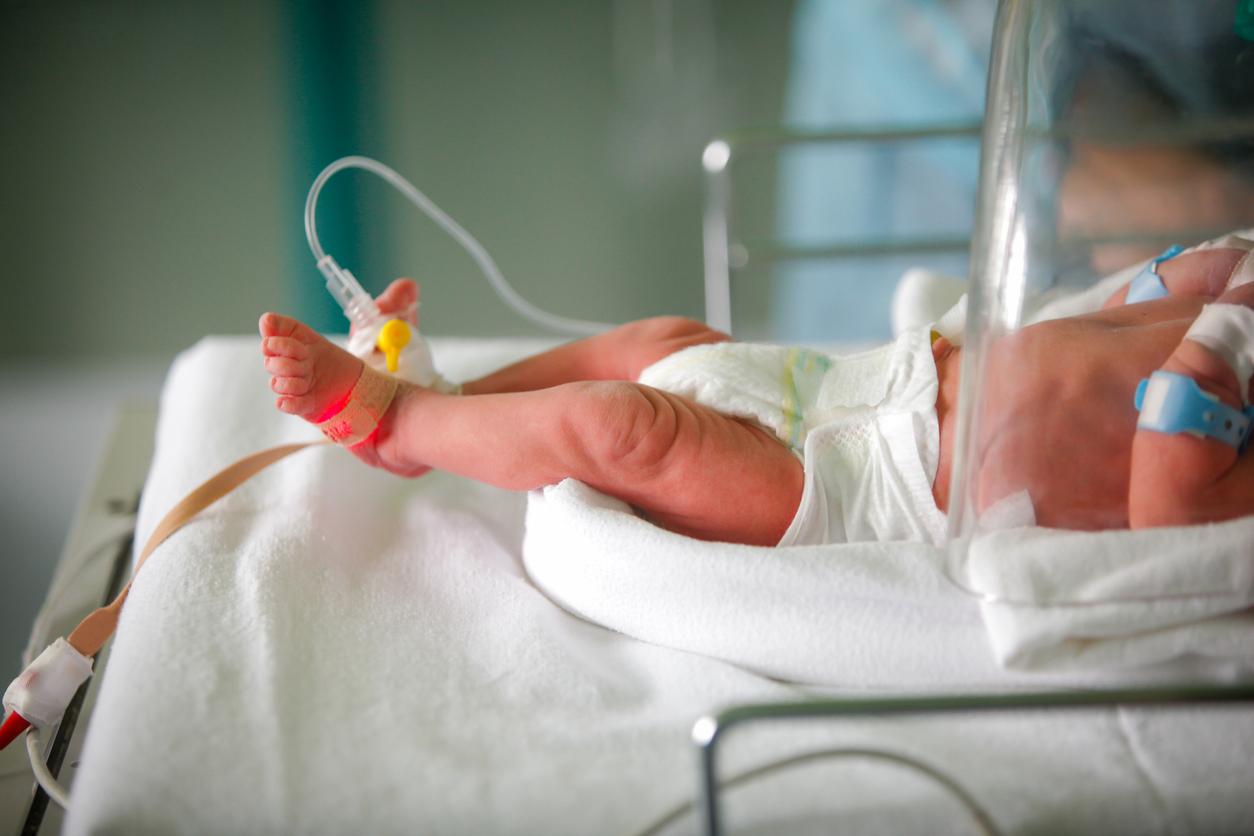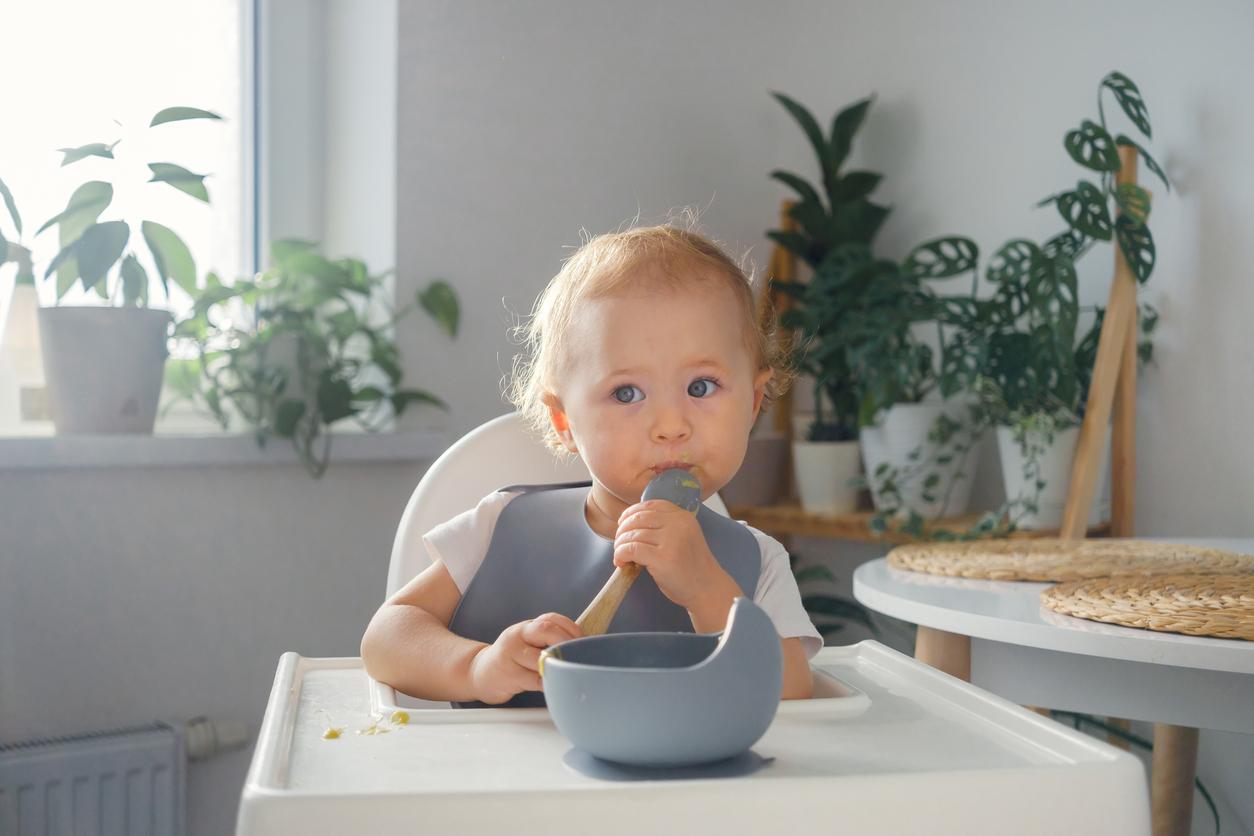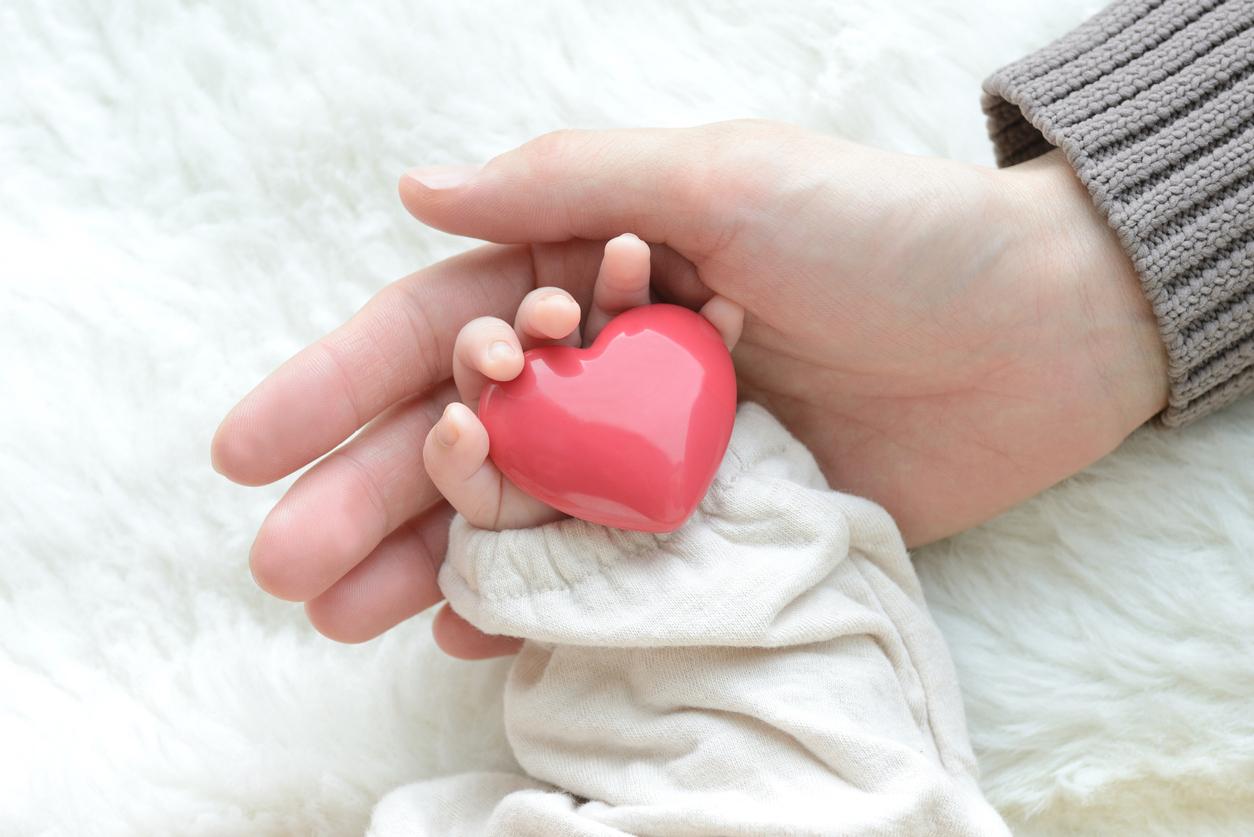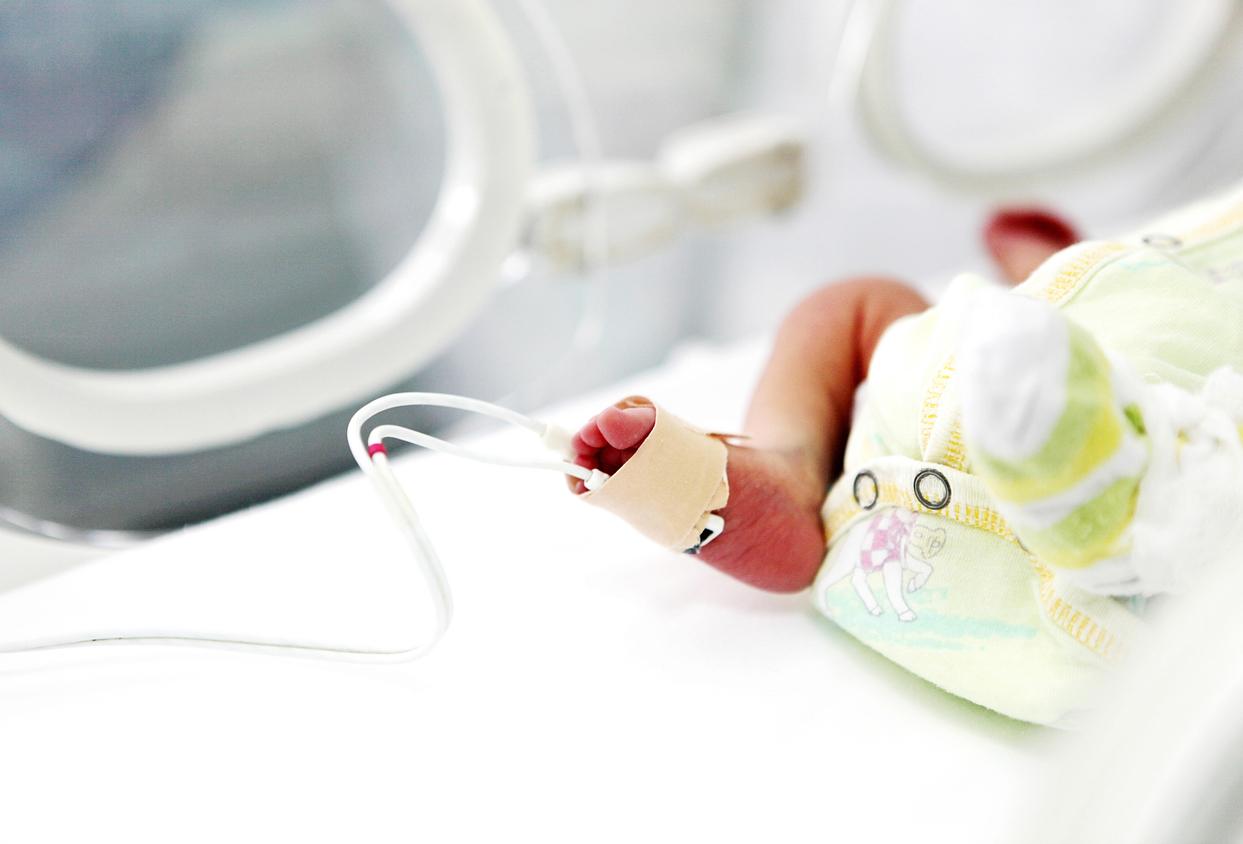Kissing an infant may seem like a harmless gesture. However, a microbiologist reminds us that this is dangerous. Explanations.

- “During the first three months, a newborn’s immune system has fewer innate immune cells that fight infections.”
- Thus, by kissing him, it is possible to transmit viruses (herpes, E.coli, group B streptococci) causing serious illnesses, such as pneumonia, meningitis and septicemia.
- To safely show affection, the microbiologist recommends always washing your hands before touching a baby and kissing their feet or the back of their head.
“As a microbiologist, I thought everyone knew it was a really bad idea to kiss a newborn anywhere, even on the head,” said Primrose Freestone, senior lecturer in clinical microbiology at the University of Leicester (England). However, this is not the case. As proof: many Internet users were surprised to learn it in a video, published on TikTokmade by Dr. Karan Raj, a British physician and surgeon. This is why, in a recent publication of The Conversationthe specialist recalls the reasons why you should not kiss a baby.
The microbiologist points out that by doing this gesture, which may seem harmless, people can transmit pathogens to a newborn. Problem: the latter presents an increased risk of contracting a serious infection, because his immune system is not fully developed when he is born. Indeed, “During the first three months, it has fewer infection-fighting innate immune cells, such as neutrophils and monocytes, than that of adults, meaning that infections that cause mild symptoms in adults or older children can be fatal to babies.
Herpes, E.coli, group B streptococci… These pathogens are transmitted during kisses
This is for example the case of the herpes simplex virus. Primrose Freestone recalls that, in adults, the latter manifests itself as cold sores. In infants, if it only affects the baby’s eyes, mouth or skin, most of them recover after antiviral treatment. But if the virus becomes systemic and affects the child’s organs, the infection is much more serious and can even be fatal. Infants are also susceptible to infections with strains of E. coli, which causes pneumonia, meningitis and septicemia.
Babies are also more vulnerable to infectious bacteria and infections by intracellular pathogens (i.e. bacteria that can enter and survive inside the cells of the host organism), such as group B streptococci. They often live into the gastrointestinal and genital tracts of their host without causing disease. “Group B streptococcal infections in babies also cause sepsis, pneumonia, meningitis and blood infections.”
Kiss their feet or the back of their head rather than their mouth or face
To prevent the child from contracting a serious infection, family members should not kiss the child. “Parents should not feel embarrassed asking visitors to avoid kissing or touching their child. If they truly care about the child’s well-being, they should not feel offended by the request .” In order to show affection safely, the microbiologist advises always washing your hands before touching a newborn, not kissing them on the mouth or face, but rather kissing their feet or back of his head. “In case of herpes infection, cover the cold sores with a bandage. (…) If you do not feel well but cannot help visiting the child, wear a mask and Avoid getting too close to the child, especially if you have a respiratory illness.”

















